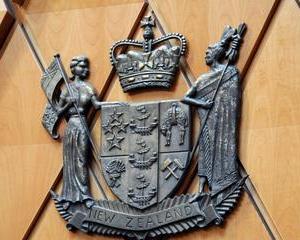Aurora Energy has complained about foul language, "public rage" and insults directed at it during meetings about looming power price hikes.
The Otago lines company objected to what it has described as rude and disruptive behaviour at public and stakeholder meetings — including scoffing, laughing and people misrepresenting the truth — and criticised the Commerce Commission for failing to maintain control of the meetings.
But the commission says the proposed price increases and the state of Aurora’s network have a major impact on consumers and it was important that those affected had a chance to express their views.
And a former contractor who worked on the network said the company was portraying itself as a victim and had hyped understandable public anger.
Aurora historically under-invested in its network of poles, lines and transformers and has applied to the commission to allow it to spend $383 million over three years or $609 million over five years to make its network safer and more reliable.
To pay for this, the Dunedin City Council-owned company forecast significant increases to power bills.
The commission is continuing to weigh up the company’s arguments, as well as those of other companies and consumers.
Public meetings and stakeholder sessions have been part of that process.
In a letter to the Commerce Commission last month, Aurora customer and engagement general manager Sian Sutton said the sessions became a forum for re-prosecuting historical issues and gave a platform to known antagonists.
Unacceptable behaviour was allowed to go unchecked, she said.
"This included the use of foul language, insults levelled directly at individuals, personal comments regarding the effectiveness of the commission staff and Aurora Energy staff, individuals dominating the discussion and misrepresenting the truth and inappropriate behaviour, including scoffing, laughing and interrupting the presenter and other speakers."
The company suggested a public meeting in Alexandra in November was characterised by public rage.
Commission chief executive Adrienne Meikle said in a response just before Christmas the effectiveness of some meetings was affected by the behaviour of some attendees.
However, the series of meetings had many positive aspects and the feedback from attendees was valuable.
The commission did not want to unnecessarily restrict what people might raise, Ms Meikle said.
Commentary on issues that were not relevant would not be considered by the commission.
Regarding misinformation, Ms Meikle said engaging in a heated debate with individuals about their personal views would not have been productive.
The parties agreed the later meetings were an improvement.
Aurora asked the commission to "review the value it believes has been derived from the meetings".
It also singled out for special mention "unexpected attendees" at the Alexandra public session, including former Delta Utility Services or Aurora employees Richard Healey, Steve Tilleyshort and Rob Douglas.
Mr Healey saw this as a badge of honour and said all three had an intimate understanding of technical information.
Aurora’s letter was a flagrant attempt to influence the commission, he said.
"They clearly understood they got a hammering at those meetings. This was their attempt to recover."
Mr Healey said Aurora was presenting itself as a victim, but senior staff were naive if they did not expect people to be upset about hefty price increases.
"They’ve created a situation where the people of Central Otago will be slammed by price rises."
Ms Sutton said Aurora’s letter was designed to provide constructive feedback to the commission.
"We support the Commerce Commission in undertaking a meaningful consultation programme and providing the opportunity for a diverse set of customers to have their say.
"We know many stakeholders appreciated the opportunity to talk directly to the regulator."
A commission spokeswoman said several hundred people had attended meetings and a variety of views and feelings were expressed.
The commission’s decision is due at the end of March.
Advertisement













